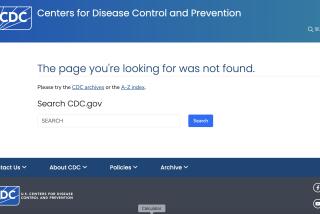On-Line Service Draws Protest in Censor Flap : Computers: America Online says move to delete word <i> breast </i> from member profiles was a mistake.
- Share via
America Online was barraged with angry e-mail this week as dozens of women who use the service to share information about breast cancer discovered the word breast had been purged from their on-line profiles in accordance with rules prohibiting “obscene or vulgar” language.
When users tried to restore a term such as breast cancer survivor to the self-descriptions that subscribers consult to find others with common interests, an automated message flashed that “vulgar” words were not permissible.
“Give us a break! Must we have ‘hooter cancer survivors?’ ” wrote one subscriber. “What is vulgar about the word breast? This is not politically correct. It is archaic,” wrote another.
The nation’s largest on-line service said Friday that the move was a mistake. But the flap underscores the knotty issues on-line providers face in handling potentially objectionable material. The on-line industry hopes that self-regulation will prevent Congress from establishing onerous restrictions, but censorship is trickier than it looks--and threatening to free speech.
Part of the difficulty lies in the still ill-defined nature of the on-line networks, which are now used by about 6 million American households. Each of the three major services have policies prohibiting vulgar or indecent material.
But recent court decisions have been inconclusive in deciding whether the services are responsible for the digitized data that flow across their networks.
Prodigy Services Co. settled a case last month in which it appeared likely to be held accountable for allegedly libelous comments by a subscriber, in part because it automatically scans messages for obscenities and slurs.
Partly to escape such culpability, CompuServe, the third major on-line service, relies on members to inform company executives of violations. That, in turn, has left the service open to criticism from parent groups and politicians concerned about the proliferation of on-line traffic deemed obscene.
Currently, on-line aficionados who want entirely unfettered expression can opt for the Internet over the proprietary on-line services. But civil libertarians worry that if Congress passes certain versions of the pending telecommunications bill, the Internet will also be subject to inconsistent and arbitrary restrictions.
Congress is close to enacting a measure imposing heavy fines and jail terms for persons who knowingly transmit material considered “indecent” on the Internet, over the protests of civil liberties and other organizations.
The New York Times reported today that a coalition of commercial on-line services, including America Online, agreed to accept a number of restrictions they had previously opposed. The group reportedly endorsed a compromise bill that is less restrictive than the measure to be taken up by a House-Senate panel next week.
For now, AOL has promised to provide members whose profiles were affected by the “breast” purge with five free hours of on-line time.
“Body parts that might be named in medical diagnoses do not fall under the category of offensive on-line communication,” AOL said in a statement.
“Although I have received no official word from AOL, I just updated my member profile and was allowed to use the word ‘breast’!” the AOL subscriber who goes by the name of MiaBella wrote Friday. “It is my hope that this situation has opened new doors of communication between AOL and breast cancer survivors on-line, and that we won’t have to keep plowing the same fields over and over again.”






